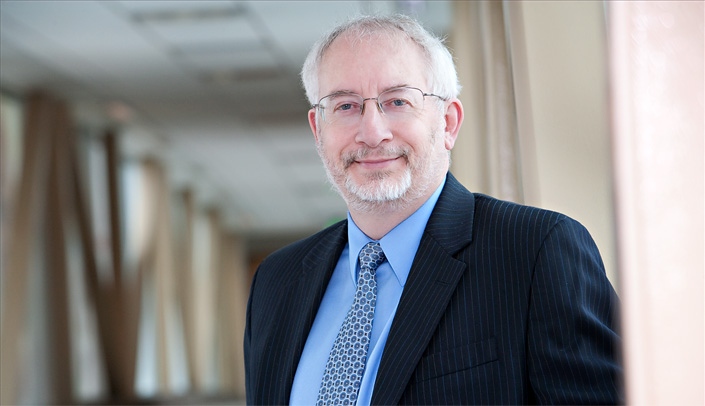A year ago, I ended my message for InterCOM with the following two sentences:
“Thank you in advance for all that you have done, are doing, and will continue doing to get us through this unprecedented challenge. I have the greatest confidence in all of you. Together we will get through this and emerge stronger on the other side.”
Much has happened over the last year, but those sentences accurately reflect my feelings about our response to the pandemic, as well as what will occur in the coming year. We have come a long way thanks to enormous effort and self-sacrifice, but most importantly to the development of highly safe and effective vaccines. We soon will welcome our first- and second-year medical students to campus to begin their classwork in person rather than virtually. I look forward to greeting the incoming students in person in a few weeks at the White Coat Ceremony, which last year was delayed and eventually carried out virtually.
However, let no one believe that the pandemic is over. Cases are now increasing rapidly in most parts of the country, including Nebraska, with some areas approaching levels of hospitalized patients that approach or exceed those that were encountered last winter. This newest surge, not unexpectedly, is being driven almost entirely by individuals who, for reasons that I must admit I have difficulty understanding, have chosen to not receive what will likely be one of the most safe and effective vaccines ever created. By doing so, they not only put themselves at risk, but — by increasing the amount of virus that is replicating — put all of us at risk by increasing the likelihood that a new variant will emerge that is not responsive to the currently available vaccines.
A year ago, I would not have believed that I would have to address this, but I continue to be disappointed when I hear of students, staff and faculty who are among those that have chosen to ignore the vaccine guidelines and remain unvaccinated, including those who mistakenly believe that prior COVID-19 infection provides the same level and duration of immunity as the vaccine. This is just not true. Our patients and colleagues have the expectation that each of us will do or have done what is necessary to protect one another and our communities. That is what health care professionals are expected to do.
Failure to be vaccinated may prevent some of our students from completing required clinical training if training sites opt to require students to be vaccinated to access a rotation. Adult and adolescent vaccination also is needed to protect our children and grandchildren, who are not yet eligible for the vaccine as we enter the upcoming school year. So if you have yet to been vaccinated, please do so as soon as possible. If you have questions, reach out to an expert to discuss — we have many on campus. Help us avoid discussions regarding the need for mandatory vaccine requirements, something I personally will favor if we don’t choose to do — on our own — what is best for our city, state and country.
I will once again close by saying:
“Thank you in advance for all that you have done, are doing, and will continue doing to get us through this unprecedented challenge. I have the greatest confidence in all of you. Together we will get through this and emerge stronger on the other side.”
